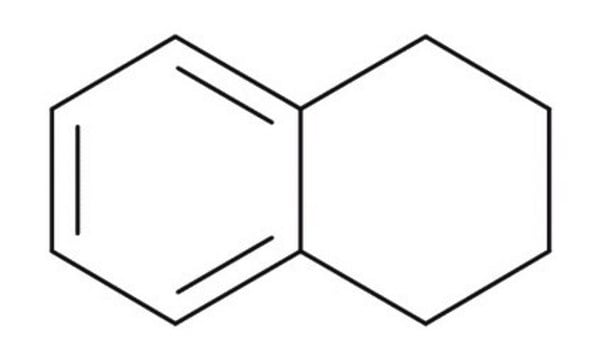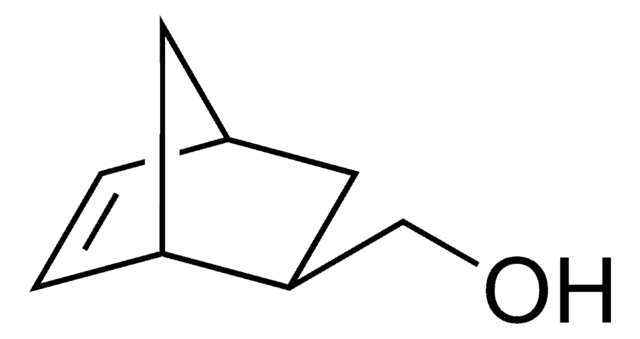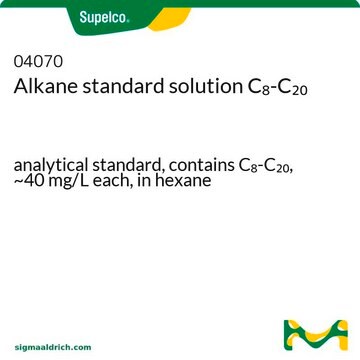95462
1,2,3,4-Tetrahydronaphthalene
analytical standard
Sinónimos:
Tetralin solvent
About This Item
Productos recomendados
grade
analytical standard
Quality Level
vapor density
4.55 (vs air)
vapor pressure
0.18 mmHg ( 20 °C)
assay
≥99.5% (GC)
autoignition temp.
723 °F
shelf life
limited shelf life, expiry date on the label
expl. lim.
0.8 %, 100 °F
5 %, 150 °F
technique(s)
HPLC: suitable
gas chromatography (GC): suitable
refractive index
n20/D 1.541 (lit.)
n20/D 1.542
bp
207 °C (lit.)
mp
−35 °C (lit.)
density
0.973 g/mL at 25 °C (lit.)
application(s)
environmental
format
neat
SMILES string
C1CCc2ccccc2C1
InChI
1S/C10H12/c1-2-6-10-8-4-3-7-9(10)5-1/h1-2,5-6H,3-4,7-8H2
InChI key
CXWXQJXEFPUFDZ-UHFFFAOYSA-N
¿Está buscando productos similares? Visita Guía de comparación de productos
Application
Legal Information
signalword
Danger
hcodes
Hazard Classifications
Aquatic Chronic 2 - Asp. Tox. 1 - Carc. 2 - Eye Irrit. 2 - Skin Irrit. 2
supp_hazards
Storage Class
10 - Combustible liquids
wgk_germany
WGK 2
flash_point_f
159.8 °F - closed cup
flash_point_c
71 °C - closed cup
ppe
Eyeshields, Faceshields, Gloves, type ABEK (EN14387) respirator filter
Elija entre una de las versiones más recientes:
¿Ya tiene este producto?
Encuentre la documentación para los productos que ha comprado recientemente en la Biblioteca de documentos.
Los clientes también vieron
Nuestro equipo de científicos tiene experiencia en todas las áreas de investigación: Ciencias de la vida, Ciencia de los materiales, Síntesis química, Cromatografía, Analítica y muchas otras.
Póngase en contacto con el Servicio técnico









